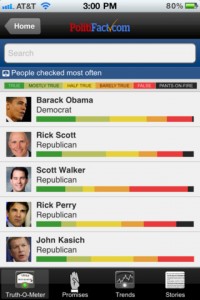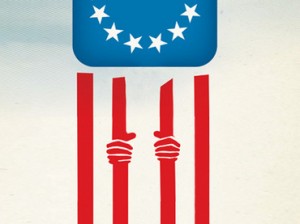 I’m used to negative politics and personal attack ads. The strategy of attacking your opponents character is probably as old as politics itself, but it’s gotten particularly virulent in recent years. Unfortunately, it’s seldom elucidating in terms of someone’s ability to govern. Women and men who have made mistakes in their past or who have truly disastrous personal lives, may well be effective policy makers. At the very least, though, we ought to be able to expect these personal attacks to be factual, and far too often they aren’t. Just follow FactCheck.org or Politifact.com and you will see far to many examples of ads called to task for being untrue.
I’m used to negative politics and personal attack ads. The strategy of attacking your opponents character is probably as old as politics itself, but it’s gotten particularly virulent in recent years. Unfortunately, it’s seldom elucidating in terms of someone’s ability to govern. Women and men who have made mistakes in their past or who have truly disastrous personal lives, may well be effective policy makers. At the very least, though, we ought to be able to expect these personal attacks to be factual, and far too often they aren’t. Just follow FactCheck.org or Politifact.com and you will see far to many examples of ads called to task for being untrue.
Sadly, I’ve grown used to these. They disgust me, but they don’t infuriate me. What does enrage me is negative campaigning the resounds beyond the campaign and affects our society more broadly. This is advertising that plays on fear, intolerance and ignorance, impugning the character not only of an individual candidate but of an entire race, religion, ethnicity, or other group. In a particularly egregious example, popular Minnesota Congressman Keith Ellison, a Democrat and a Muslim, is now being challenged in the race by Gary Boisclair, an anti-abortion activist, and member of Randall Terry’s Society for Truth and Justice (STJ), one of 25 candidates they are running in carefully selected advertising markets, less in hopes of getting the candidate elected than as a cover for running explicit anti-abortion tv advertising. It’s a sleazy but clever strategy, one that the organization itself cops to. I kind of admire it. But Bosclair is also using campaign ads promote a Islamophobic agenda, running ads that explicitly attack Ellison’s religion, and that is unacceptable.
Continue reading →
 The Scholars at Risk media review seeks to raise awareness about academic freedom issues in the news. Subscription information and archived media reviews are available here. The views and opinions expressed in these articles are not necessarily those of Scholars at Risk.
The Scholars at Risk media review seeks to raise awareness about academic freedom issues in the news. Subscription information and archived media reviews are available here. The views and opinions expressed in these articles are not necessarily those of Scholars at Risk.


